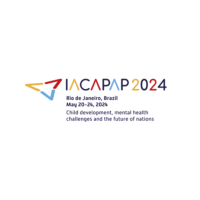Blog
-

Treatment of Childhood Disruptive Behaviour Disorders and Callous-Unemotional Traits
In this Papers Podcast, Samantha Perlstein discusses her co-authored JCPP paper ‘Treatment of childhood disruptive behavior disorders and callous-unemotional traits: a systematic review and two multilevel meta-analyses’. Samantha is the first author of the paper.
Read more -

Longitudinal association of conduct and emotional problems with school exclusion and truancy: A fixed effect analysis of the UK Millennium Cohort Study
Open Access paper from the CAMH journal – ‘This study examines school exclusion and truancy in relation to both conduct and emotional problems and considers these problems both as predictors and as outcomes of school exclusion and truancy.’ Aase Villadsen (pic) et al.
Read more -

Professor William Yule RIP
We are saddened to learn of the death of Professor William Yule, Emeritus Professor of Applied Child Psychology at King’s College London Institute of Psychiatry, Psychology and Neuroscience.
Read more -

Are some children genetically predisposed to poor sleep? A polygenic risk study in the general population
Open Access paper from the JCPP – ‘Children who are genetically predisposed to insomnia have more insomnia-like sleep problems, whereas those who are genetically predisposed to longer sleep have longer sleep duration, but are also more awake during the night in adolescence.’ Desana Kocevska (pic) et al.
Read more -

Identifying characteristics of adolescents with persistent loneliness during COVID-19: A multi-country eight-wave longitudinal study
Open Access paper from JCPP Advances – ‘Using the widespread social restrictions associated with the COVID-19 pandemic, which precipitated loneliness in many, we aimed to examine adolescents’ loneliness profiles across time and the demographic predictors (age, sex, and country) of more severe trajectories.’ Laura Riddleston (pic) et al.
Read more -

Social connectedness and adolescent suicide risk
Open Access paper from the JCPP – ‘Despite evidence of the importance of interpersonal connectedness to our understanding of suicide risk, relatively little research has examined the protective and buffering effects of connectedness among adolescents.’ Alejandra Arango (pic) et al.
Read more -

A systematic review of the association between parent-child communication and adolescent mental health
Open Access paper from JCPP Advances – ‘This systematic review addresses how adolescent-rated parent-child communication (PCC) quality is related to adolescent mental health.’ Holger Zapf et al.
Read more -

IACAPAP Congress 2024 – Discount for ACAMH Members
IACAPAP Congress 2024 Rio is open for registration now! ACAMH Members are be eligible to enjoy the “IACAPAP Member Association” rate using a discount code.
Read more -

Are restricted and repetitive behaviours in two- and six-year-olds associated with emotional and behavioural difficulties?
Open Access paper from JCPP Advances – ‘This study aimed to characterize the association of distinct RRB subtypes at two and six years of age, with internalising and externalising difficulties in a community sample of children.’ Sarah J. Carrington (pic) et al.
Read more -

The relationship between cognitive and affective control and adolescent mental health
Open Access paper from JCPP Advances – ‘This study examines whether adolescent mental health is associated with affective control, the application of cognitive control in affective contexts, which shows more protracted development than cognitive control.’ Savannah Minihan et al.
Read more